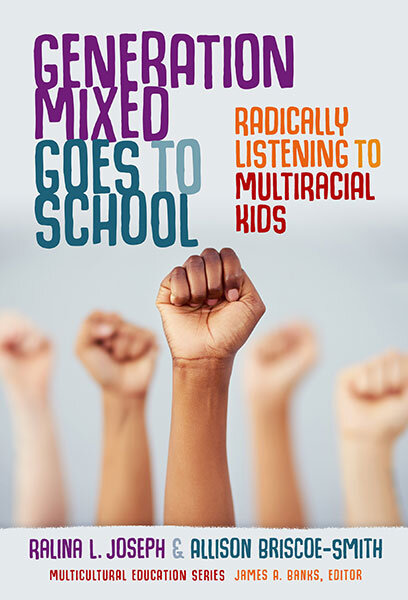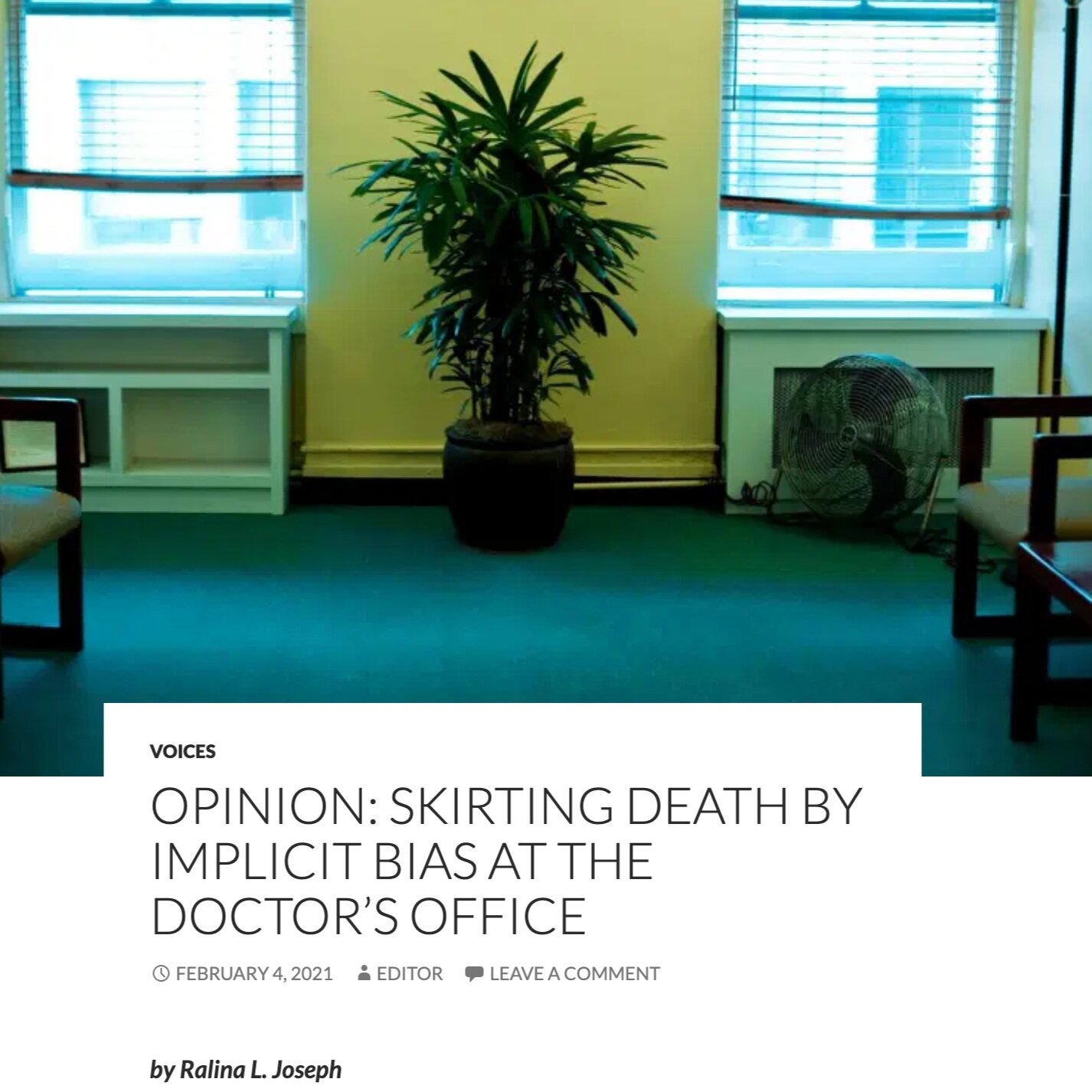Now Writing: Combating Racial Exhaustion
I am currently writing a book based on my public scholarship called, Combating Racial Exhaustion: Critically Communicating Race through the Rise and Fall of DEI. Racism is exhausting. The daily experiences of interpersonal racism (microaggressions) colliding with and amplifying structural, historical, and institutional racism produces a state of racial exhaustion. Racial exhaustion grows through these daily experiences, and multiplies when people, structures, histories, and institutions fail to register, believe in, or work to change racism. Partnered with resigned frustration, racial exhaustion is the embodied, emotional experience of feeling done: lethargic limbs, exasperated sighs, closing eyes. Combating Racial Exhaustion identifies the racially disparate ways in which people of color and whites communicate about race today. It envisions better ways to fight it and helps readers understand how we can connect more equitably – critically communicating - across, within, and among racialized identities, by acquiring a critical race communication lens. This book aims to accomplish two wildly different goals: 1. combating the racial exhaustion of people of color while also 2. confronting the racial exhaustion of white skeptics and allies.
Generation Mixed Goes to School
Radically Listening to Multiracial Kids
Generation Mixed Goes to School: Radically Listening to Multiracial Kids, (with Dr. Allison Briscoe-Smith), centers the perspectives of multiracial children in the creation of anti-racist schools. Listen to Ralina and Allison talk about the book on KALW’s “State of the Bay,” watch them with Jared Ball, listen to a podcast about the Gen Mixed Project by former CCDE RA Dr. Anjuli Brekke, and read an interview in the South Seattle Emerald. Generation Mixed won the DKG Educators award in 2022.
Ralina and Allison at a Gen Mixed listening party
Postracial Resistance
Black Women, Media, and the Uses of Strategic Ambiguity
From Oprah Winfrey, Michelle Obama, and Shonda Rhimes to their audiences and the industry workers behind the scenes, Ralina L. Joseph considers the way that Black women are required to walk a tightrope. Do they call out racism only to face accusations of being called “racists”? Or respond to racism in code only to face accusations of selling out? Postracial Resistance explores how African American women celebrities, cultural producers, and audiences employ postracial discourse—the notion that race and race-based discrimination are over and no longer affect people’s everyday lives—to refute postracialism itself. In a world where they’re often written off as stereotypical “Angry Black Women,” Joseph offers that some Black women in media use “strategic ambiguity,” deploying the failures of post-racial discourse to name racism and thus resist it.
Transcending Blackness
From the New Millennium Mulatta to the Exceptional Multiracial
Transcending Blackness: From the New Millennium Mulatta to the Exceptional Multiracial (Duke University Press, 2013), critiques anti-Black racism in mixed-race African American representations in the decade leading up to Obama’s 2008 election. Listen to an interview about Transcending Blackness on Seattle’s NPR affiliate, KUOW.
Select Popular Writing
A LOOK INTO DIGITAL BLACKFACE, CULTURE VULTURES, & HOW TO READ RACISM LIKE BLACK CRITICAL AUDIENCES (with Lando Tosaya)
Part three of this Flow series, a look into Digital Blackface, coalesces our arguments from parts one and two.
Read the story at FLOWJournal
Skirting Death by implicit bias at the doctor’s office
A couple of years ago racism almost killed the love of my life, my husband, the father of our two children. The attempted murder didn’t come about through police violence or Karens trying to regulate his use of public space. Instead it came through the hands of the very people who should be improving the quality of his life: his doctors.
Read the story on South Seattle Emerald
Watching Woke: an exercise in restraining our burden of representation (with laura irwin)
Part one of this Flow series argued that the United States’s national racial reckoning illuminates the ways in which “activism” and “performative activism” are not easily separable into convenient binaristic spheres. Instead, this moment invites in a middle space to reconcile the paradox where, as Moultrie and Joseph argue, “in one context, the male Black body is admired, even fetishized. In the other, the same body is vilified and justified as threatening.”
Read the story on FlowJournal.
Fighting racial dialogue fatigue
While I was facilitating a racial dialogue session today, a white woman expressed what so many of us are feeling around racial justice work right now: she said she was exhausted. In response, a BIPOC participant respectfully sighed, “I’m tired too, but I don’t have the luxury to lie down.”
Read the story on South Seattle Emerald.
Activism or Performative Activism? (with jas moultry)
The recorded murder in Minneapolis, Minnesota on May 25, 2020 of 46-year-old George Floyd generated an unprecedented global response to Black racialized violence. While the sheer grotesqueness of the 8 minutes and 46 seconds are reason enough for widespread condemnation of anti-Black violence, the physical isolation and virtually simulated connection of #quarantinelife compelled more communities to pay attention. Conscientious media users, even those for whom race had not previously registered as “an issue,” had little room for willful ignorance with everyone indoors and attached to our screens. Before long, brands and corporations began to respond as well
Read the story on FlowJournal.
Black cultural studies is intersectionality (with marcus johnson)
This article argues that Black cultural studies must be understood as an intersectional intervention of praxis. Grounding our field in the past, speaking from the present, and projecting to the future, we examine the transformational influence that Black feminist theory has had on cultural studies, from Kimberlé Williams Crenshaw’s defense of 2 Live Crew, to the #SayHerName and Protect Black Women rally and marches.
Read the story on SagePub.
Thank you, Michelle Obama, for your book’s hard truths about the post-racial myth
Michelle Obama is showing us the need for difficult and essential conversations about race.
Read the story on The Seattle Times.
Don’t Forget About Serena
Reddit founder and Serena Williams’s partner Alexis Ohanian succinctly pointed out the double standard between the public acceptance versus the public outcry over our new Supreme Court justice’s anger and Williams’s at the U.S. Open, Tweeting, “it’s not funny, it’s bullshit.” Maybe we can now shift our focus onto precisely why and how Serena was disciplined from emoting while Kavanaugh was lauded for his emotional outbursts. So why, outside of bad tennis calls, might Serena be angry?Read the story on NYU Press blog.
What's the Difference with Difference
In this essay, Dr. Joseph briefly trace various discourses surrounding tolerance, multiculturalism, and diversity, before moving to difference to think to equity.
To watch talk version of article, click here.
Respectability Politics and Shonda Rhimes, a Black Woman Showrunner
Black women’s visibility on television has undergone a sea change because of television showrunner Shonda Rhimes.
Read the story on Black Perspectives.
Guest: The fury over a Cheerios ad and an interracial family
Published on The Seattle Times
The response to a Cheerios TV ad exposes American discomfort with interracial families, writes guest columnist Ralina Joseph.
Read the story on The Seattle Times.
Columns on Oprah for FLOW
Dec. 2013 - March 2014
Considering how the media morphed Oprah into Angry Black Woman during the 2013 Swiss handbag “incident”. Read more.
Reading the media spin on Oprah’s handbag scandal of 2013. Read more.
Considers how Oprah Winfrey’s public negotiations of race and gender-based discrimination can inform audiences about speaking back. Read more.
Academic Writing:
Ralina’s academic writing has appeared in journals such as The International Journal of Communication; Critical Studies in Media Communication; Communication Studies; The Black Scholar; and Communication, Culture, and Critique, and in edited collections such as Race and Media: Critical Approaches; Are You Entertained?: Black Popular Culture in the Twenty-First Century; Race/Gender/Media: Considering Diversity Across Audiences, Content, and Producers; Blackberries and Redbones: Critical Articulations of Black Hair/Body Politics in Africana Communities; and Claiming a Seat at the Table: Feminism, Underserved Women of Color, Voice, and Resistance. If you want any of my pubs and don’t have free access to them without having to pay a hefty fee, please contact me directly and I will share them with you.

















